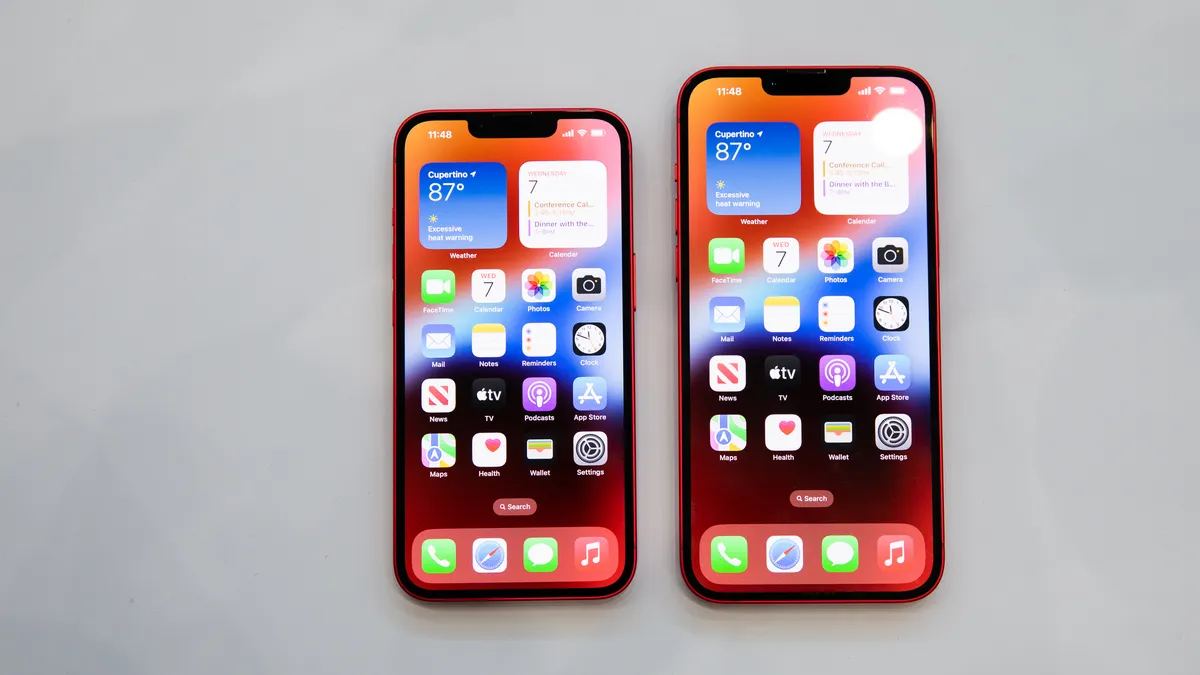Apple’s latest mobile software release — iOS 16 — brings back battery percentage to the iPhone status bar. Apple pulled out the feature with the release of iPhone X in 2017 due to space requirements for various sensors like the camera and microphone.
Now it’s back. But a lot of iPhone users aren’t too happy about it. First, some iPhones didn’t get the new battery percentage meter. Second, some users don’t like way it’s been redesigned.
Luckily for both groups, it turns out that Apple has been listening. Apple has released two iOS 16.1 developer betas since the release of iOS 16, and both updates address the major complaints about the new battery icon support and design.
Here’s what you need to know.
What’s the deal with the battery status meter on the iPhone?
iPhones used to include the exact percentage of your battery right in the status bar. But after the release of the iPhone X, which introduced the notch — the black bar at the top of your device that houses a speaker and camera — there wasn’t enough screen real estate left to keep the battery percentage in the status bar, so Apple nixed the feature.
Sure, you can swipe down from the top right of your iPhone to view the exact percentage in the Control Center, but that means you can’t glance at the battery percentage from within any app or from the home screen. And it’s nearly impossible to gauge the exact percentage from just the battery icon, which is not good if your iPhone is close to dying.
iOS 16 reintroduces the battery percentage number back in the status bar, inside of the existing battery icon.
Which iPhone models won’t get the battery percentage feature back?
Not all iPhone users with iOS 16 will see the new battery percentage feature in the status bar, which is frustrating for some. Although there hasn’t been an official statement as to why certain models are excluded from the feature, it seems to be because of lower pixel density for some of the devices, and lack of space for others.
According to this Apple support page, the following models don’t support the feature:
- iPhone XR
- iPhone 11
- iPhone 12 Mini
- iPhone 13 Mini
The only way you can view your battery percentage on iPhones that don’t support the new feature is to either add a battery widget to your lock screen/home screen or swipe down from the top right of your iPhone to view the battery percentage next to the battery icon (instead of inside it).
However, the new battery percentage feature will come to the iPhone XR, iPhone 11 and iPhone Minis with iOS 16.1, which was released last week for developers. You can check out how to download it here, but it should be pushed out to the general public soon enough.
Even some people who do have the feature are frustrated with its design
Not everyone is happy with the design of the new battery percentage icon. Although the battery percentage itself is always visible in the status bar on supported devices, the battery icon itself always shows as full, whether the phone is idle, charging or on low power mode — only the color changes. So it can be a bit confusing if you just glance at it.
The only time the design really changes is when the battery reaches 20% or less — the battery icon then shows as depleted, or about a fifth full, and turns red.
On Twitter, Mikael Johansson created a mockup that shows the battery icon changing along with the percentage. Thousands of people have liked the tweet and many have agreed it’s an improvement over the current design.
Apple listened and is redesigning the battery percentage icon with iOS 16.1
Apparently, Apple has heard the criticism leveled by iPhone users and redesigned the battery percentage icon with iOS 16.1, which is currently in its second developer beta. As the mockups that Mikael Johansson posted online showed, many people preferred a battery icon that drained, along with the percentage.
And that’s exactly what Apple is changing the battery icon to, as you can see in the tweet below posted by Federico Viticci. Instead of just the percentage going down, the battery icon design depletes as well, making it easier to see how full (or empty) your battery life is.
However, iOS 16.1 is still a ways away from releasing to the general public. If you really want it now, here’s how to download the developer beta.
Preorders for iPhone 14 are open, and the phone itself will be available Friday, Sept. 16. For more, learn everything Apple unveiled at its “Far Out” event last week.

